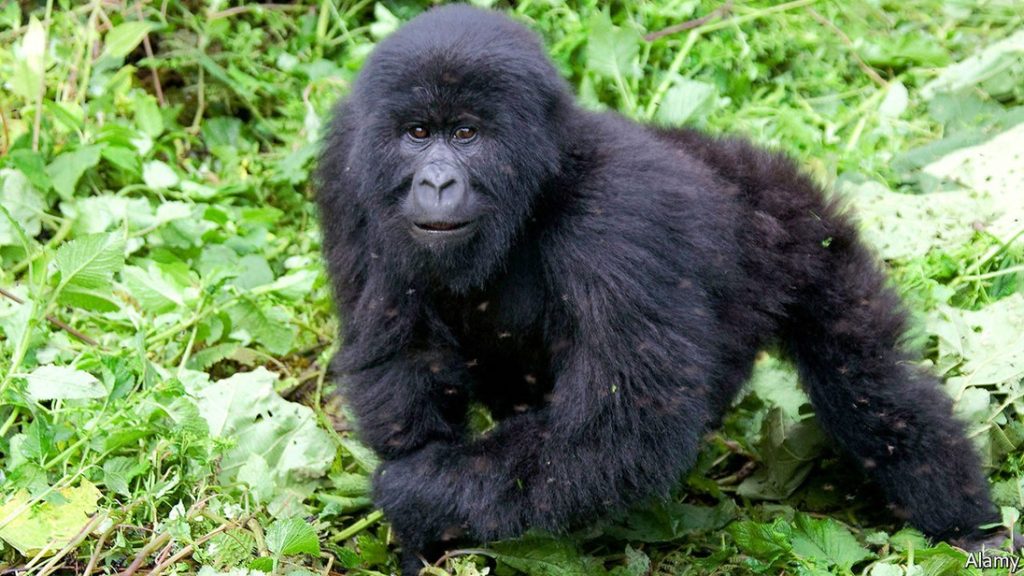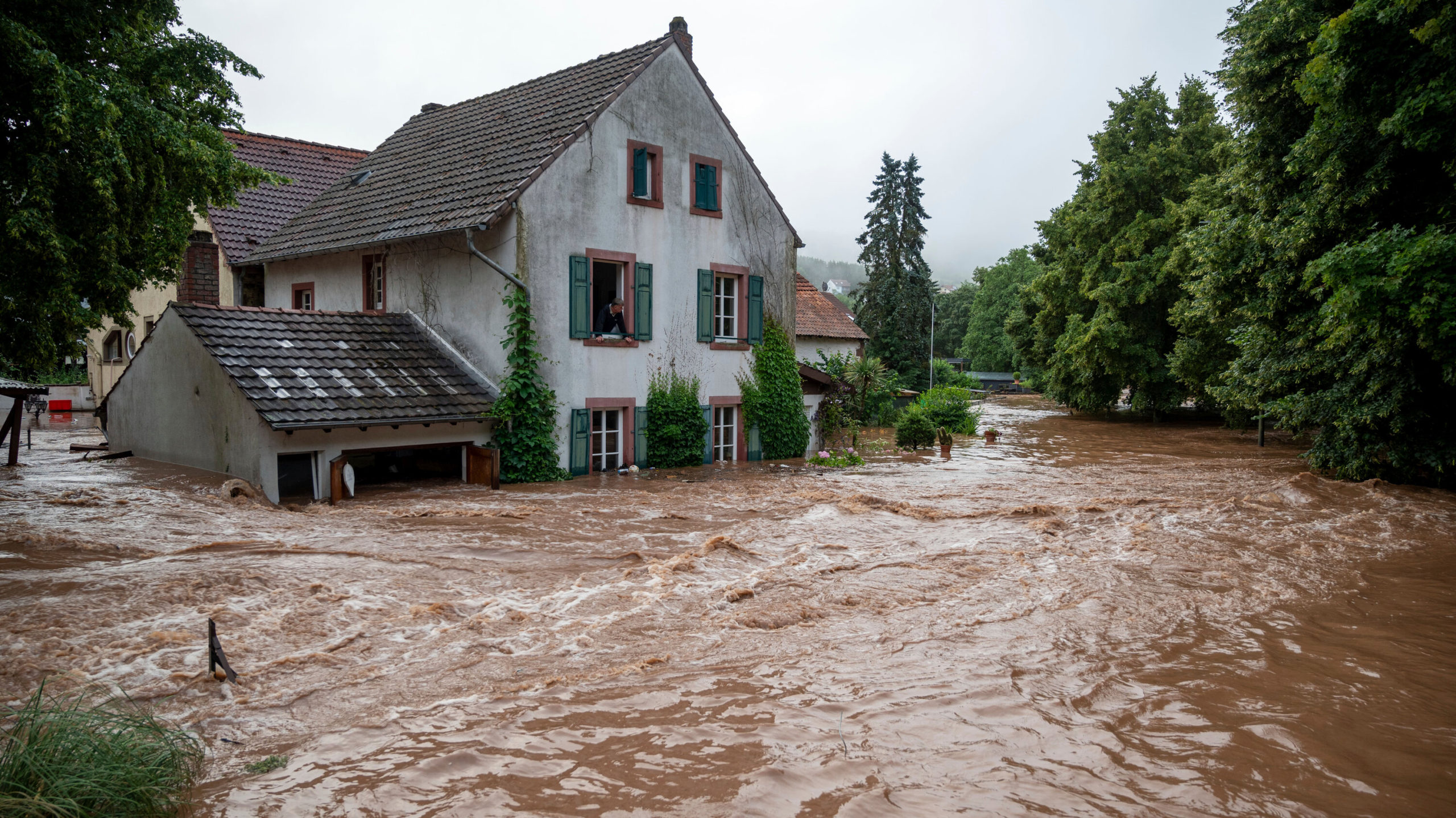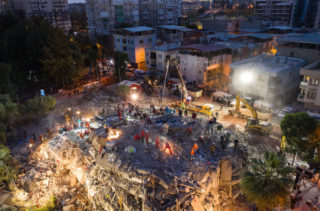
DAKAR — UP THE CONGO river from Kinshasa, the capital of the Democratic Republic of the Congo, is a boggy, blooming, buzzing ecosystem that is home to elephants, gorillas and bonobo monkeys—as well as swarms of insects, many with a taste for human blood. Underfoot is the world’s biggest area of tropical peatlands, consisting of partially decomposed trees and plants. Undisturbed, it holds the equivalent of three years’ worth of global emissions from fossil fuels, mitigating global warming.
Its slumber may soon end. On July 28th and 29th Congo will auction 27 oil-exploration blocks that encompass 1m hectares of peatlands and perhaps 11m hectares of rainforest. The government reckons that under these blocks are at least 16bn barrels of oil, which are currently worth roughly $650bn, an especially large sum in a country with a gdp of only $54bn.
The auction highlights two issues facing poor African countries endowed with untapped fossil fuels. The first is that, despite being responsible for a tiny fraction of greenhouse-gas emissions, they are being told not to exploit their oil, gas and coal. Last year the International Energy Agency (iea), an intergovernmental think-tank, argued that there should be no new fossil-fuel developments anywhere if the world is to balance greenhouse-gas removal with greenhouse-gas emissions by 2050.
The second issue is whether poor countries should bear the costs and opportunity costs of protecting forests, peatlands or other ecosystems that benefit the world’s climate. Take Congo’s peatlands, which sit under swampy water for most of the year. If these swamps were to be drained permanently, much of the carbon stored in the peatlands would begin to escape. Simon Lewis of Leeds University warns that the swamps are already “close to the edge” of drying out and that even building roads to explore for oil could cause the peatlands to release carbon.

It is not just the peatlands that are at risk. A dozen oil blocks overlap with protected areas, including two national parks. One, Virunga National Park, is home to some of the world’s last mountain gorillas (see map).
For the Congolese government, though, the priority is economic development. Congo is among the five poorest countries in the world. “Imagine what oil can do for us,” says Didier Budimbu, the minister of hydrocarbons. He says the sale of it will finance schools, roads and hospitals. And he claims that criticism from rich countries, which prospered using fossil fuels and still rely on them, is hypocritical. “We’ve seen the American president go to the Middle East to ask them to produce more,” says Mr Budimbu.
The minister is equally dismissive of a deal signed by rich countries eight months ago that is meant to provide Congo with $500m to protect forests. It built on a smaller deal from 2016. “Not even one euro has entered Congo” under the deals, scoffs Mr Budimbu. (The intergovernmental organisation charged with implementing them says that $111m has been spent in Congo since 2016.)
One problem with Mr Budimbu’s case is that, until now, Congo’s vast resource wealth has only benefited the few. The country consistently ranks among the most corrupt in the world. Proceeds from copper, cobalt and diamond exports rarely trickle down to the more than 60m people (almost three-quarters of the population) who survive on less than $1.90 a day. Many of the communities in the new oil exploration blocks have not been informed, let alone consulted, about the government’s auction plans. In Upemba National Park local chiefs only heard of them from Greenpeace, an environmental group.
Activists fear the worst. Faustin Nyebone, who is based in Goma for aiced, another environmental group, speculates that politicians “may want to have something to put in their pockets” in case they lose in elections next year. It will not be easy for the public to scrutinise whether the proceeds from the auction and future oil production end up in the right place. An campaigner against the auction has already received threatening phone calls.
Some activists think the auction will flop because of Congo’s risky business environment and how difficult it will be to transport oil to international markets. Total, a French oil firm that the Congolese government had taken to tagging in tweets promoting the auction, tells The Economist it will not participate. Nor will Eni and Shell, two other oil majors. Mr Budimbu still insists there is “enormous interest” in the auction. Perenco, an Anglo-French oil company which is already active in Congo, says it will study the proposals.
For now the outlook for the peatlands looks grim. When asked about the potential harm to the environment of the government’s plans, Mr Budimbu focuses on the oil: “We will exploit it, we will extract it, we will sell it, we will commercialise it.”
By The Economist




